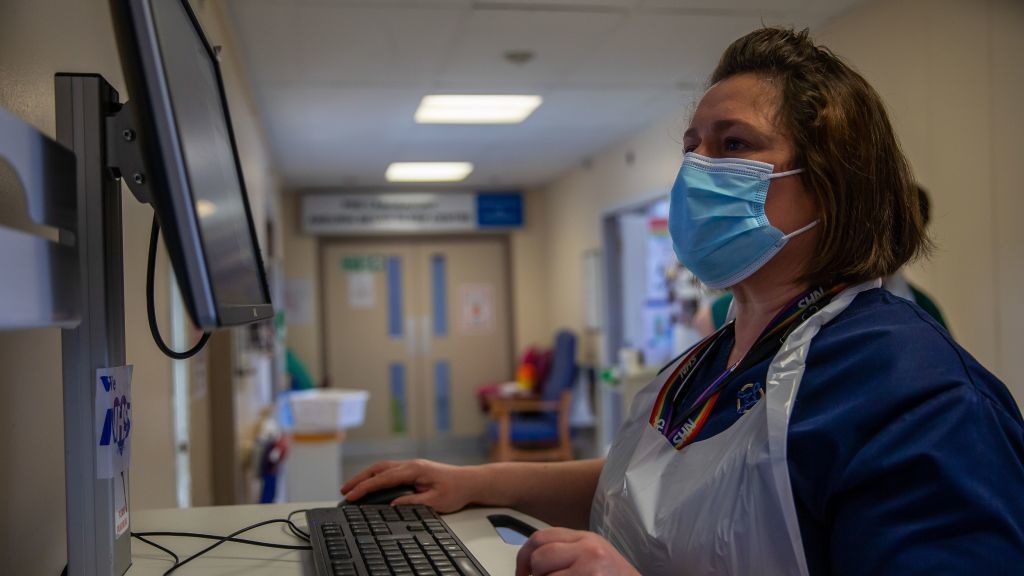NHS ‘shouldn’t assume that digital technology will lead to significant savings’ – Nuffield Trust
Wearables, smartphone apps and online access to records could be ‘double-edged swords’

The NHS shouldn't assume that digital technologies such as wearables and smartphone apps will lead to significant savings, according to independent health charity Nuffield Trust.
In its report, dubbed The digital patient: transforming primary care?', the charity warned politicians and policy makers to avoid assuming that self-care-enabling technology would produce huge savings, at least in the short term.
The charity reviewed technologies for primary care use including wearables such as Fitbits, symptom checkers, video consultations, online GP appointment booking, and apps. It did not include medical technologies for use by doctors, such as devices to assist in performing surgery.
The report's author, Sophie Castle-Clarke, says that while these types of technologies are becoming more prevalent within the NHS and are helping many of its patients, the technology could be a "double-edged sword".
"There's still a lot we don't know. Without regulation and a careful look at the evidence not all of which is compelling these digital tools could compromise the quality of care and disrupt the way care is provided," she suggested.
The pitfalls of the technology, according to the report, include the fact that some of the 165,000 health apps on the market have not been properly assessed yet, and that there is a lack of evidence around the effectiveness of apps and online triage systems.
Other issues include difficulty in supporting patients to use the technology, and for NHS staff to change the way their work in order to encourage patients to use technology more.
Sign up today and you will receive a free copy of our Future Focus 2025 report - the leading guidance on AI, cybersecurity and other IT challenges as per 700+ senior executives
Finally, Nuffield Trust said that there is a lack of robust evidence on the impact many technologies will have, and in which contexts specifically on health outcomes.
But it said that there are many promising areas and a number of technologies that urgently require further research. These include digital tools for self-triage, online access to records and remote consultations.
-
 What is Microsoft Maia?
What is Microsoft Maia?Explainer Microsoft's in-house chip is planned to a core aspect of Microsoft Copilot and future Azure AI offerings
-
 If Satya Nadella wants us to take AI seriously, let’s forget about mass adoption and start with a return on investment for those already using it
If Satya Nadella wants us to take AI seriously, let’s forget about mass adoption and start with a return on investment for those already using itOpinion If Satya Nadella wants us to take AI seriously, let's start with ROI for businesses
-
 NHS leaders are keen to adopt new digital tools, but IT can't solve problems on its own
NHS leaders are keen to adopt new digital tools, but IT can't solve problems on its ownA survey of healthcare decision-makers finds they believe IoT devices and electronic health recording could help them reach more patients quicker
-
 How a paperless approach cut wasted staff hours at Bradford Teaching Hospitals Trust
How a paperless approach cut wasted staff hours at Bradford Teaching Hospitals TrustCase study Through DrDoctor’s digital portal for patient appointments and advice, the Rheumatology team at Bradford Teaching Hospitals NHS Foundation Trust has dramatically cut
-
 Healthcare’s next chapter
Healthcare’s next chapterwhitepaper Revolutionizing how you care with EPR experts you can trust
-
 How digital experience management helped an NHS trust improve productivity
How digital experience management helped an NHS trust improve productivityCase study Princess Alexandra Hospital NHS Trust used digital experience management to cut device failure and restore time to clinicians
-
 Will the NHS Federated Data Platform transform UK healthcare?
Will the NHS Federated Data Platform transform UK healthcare?In-depth Plans to create a data platform in partnership with the private sector could revolutionize NHS treatment, but concerns over data privacy and security are festering
-
 NHS IT issues costing doctors more than 13 million hours annually
NHS IT issues costing doctors more than 13 million hours annuallyNews Doctors warn that ageing IT infrastructure is impacting patient care and clinical outcomes
-
 Automation is helping the NHS clear its patient backlog, but not as quickly as expected
Automation is helping the NHS clear its patient backlog, but not as quickly as expectedAnalysis The healthcare service's big bet on robotic process automation is making 'impactful' but slow progress
-
 DHSC sets out ambitious targets for NHS App by 2023, beyond
DHSC sets out ambitious targets for NHS App by 2023, beyondNews Ongoing NHS digitisation efforts will form backbone of the new system